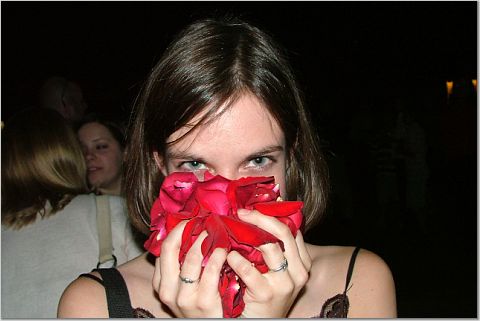As mentioned a few weeks ago, Tolkien's love for songs and poetry runs throughout his stories. Here is a song sung by Aragorn as he approaches Edoras with Legolas, Gandalf and Gimli:
Where now the horse and the rider? Where is the horn that was blowing?
Where is the helm and the hauberk, and the bright hair flowing?
Where is the hand on the harpstring, and the red fire glowing?
Where is the spring and the harvest, and the tall corn growing?
They have passed like rain on the mountain, like a wind in the meadow;
The days have gone down in the West behind the hills into shadow.
Who shall gather the smoke of the dead wood burning,
Or behold the flowing years from the Sea returning?
Some sad, ethereal power sings its way through these lines...I can't explain why they touch me, but they do. Tolkien has a gift for making the reader look far back into history, even a history we don't know, and calling us to remember its glory. The songs in the books always idealize the past, and speak of the present as rather a dark time. Even so, the "present" (i.e. the Third Age of Middle-earth, the time of the Fellowship's quest) is also a time when great deeds are done. The past acts as a perfect prelude to the present, setting up a grand plan that will be fulfilled in this time. For example, Aragorn's heritage as a descendant of Numenor makes him the perfect one to defeat the Dark Armies and claim the throne of Gondor. The long enmity between the Dwarves and Elves, and the urgency of the present time, makes the friendship of Legolas and Gimli particularly poignant. Gandalf's long history in Middle-earth has given him invaluable knowledge of the creatures, the land and the races of people, which he must use in this, his last and greatest task. Like Esther in the palace of Susa, all the members of the Fellowship and even their dark counterparts have been prepared "for such a time as this."


0 Comments:
Post a Comment
<< Home